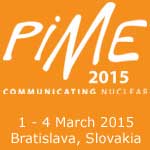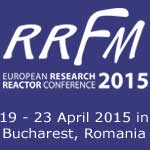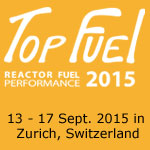
ENS NEWS N° 47: IntroThe second half of 2014 was marked by the strong winds of change that blew through the corridors of power in Brussels. The election of a new Parliamentary Assembly was followed by the nomination of a new EC President, Jean-Claude Juncker, and a new President of the European Council, Donald Tusk. President Juncker wasted no time in nominating his team of Commissioners and Vice Presidents. Then he outlined the main priorities of his administration, which include an EU Energy Union, a European Energy Security Strategy, a €315 billion EU Investment Plan, and intensified action in the fight against climate change. Maroš Šefčovič was nominated the first ever Vice President for Energy Union, and Miguel Arias Cañete became the first ever Commissioner for Energy and Climate Change. By combining these two portfolios under the responsibility of one Commissioner, President Juncker showed unequivocally how, according to the new EC’s strategic vision, the two are inseparable. These institutional innovations represented a significant change in leadership style and structure, and gave fresh impetus and a renewed sense of purpose to the EC, the European Parliament and the European Council. The political and institutional landscape in Brussels was redrawn. The European nuclear community has long promoted the climate change credentials of nuclear energy. The declaration that climate and energy policy are inextricably linked will provide that community with a platform for promoting the environmental advantages of nuclear energy even more forcefully than before. Nevertheless, any new political configuration inevitably creates uncertainty. Radical change is often greeted with a healthy dose of scepticism and invariably provides more questions than answers. What part would nuclear play in Europe’s energy future following these changes? What new blueprint for action would translate vision into reality? And how would it impact upon those working in the frontline of nuclear research and innovation? Of course, recent events in Brussels might not have been a source of great enthusiasm for everyone, especially those with a lack of interest in - or natural suspicion of - politics and politicians. But total indifference to change, when that change might impact upon our working environment or redesign the priorities that drive our work, is not an option. A number of President Juncker’s major priorities, however, are of particular interest to the wider nuclear community. The EU Energy Union project, for example, rests upon five pillars: to enhance security of energy supply, to build a single internal energy market, to increase energy efficiency, to decarbonise the economy and - last but not least - to boost research and innovation. The much publicised EU Investment Plan features a number of nuclear energy-related investment projects on its list of priorities. These reflect the contribution that nuclear energy will continue to make to socio-economic growth, environmental sustainability, and research and innovation in the EU. Among the most notable priority projects listed are three nuclear new build projects in the UK (Hinkley Point C, Moorside and Wylfa), as well as Poland's first-ever nuclear power plant construction programme. Investment in research into innovative new technologies will ensure a new generation of even safer, more efficient and more environmentally-sustainable reactors. These reactors will help meet the EU's security of supply, climate change and competitiveness targets. Close scrutiny of the EC’s research and innovation mission, as presented by the new Commissioner for Research, Science and Innovation, Carlos Moedas, reveals both the ambition and the scope of the task ahead. The objectives of the EC’s research and innovation policy are as follows: to ensure that research funding, especially Horizon 2020, contributes to jobs, growth and investment; to promote the excellence of science and research at both Member State and EU level; to ensure that funding is better used; to guarantee that EC proposals are based on scientific fact and to encourage the private sector to apply research in order to meet today’s great societal challenges. As is the case with every new administration, it will have to prove itself. Only time will tell whether its bold statements of intent will prove to be a genuine springboard for real progress, or whether they will return to haunt those that made them. Will that wind that blew through those corridors of power find its way to the research laboratories, university faculties, hospitals or the boardrooms of industry? Will it prove to be a providential wind, or will it gradually lose its force and direction until it is reduced to nothing more than a gentle breeze?
|
||
Word from the PresidentIn December 2015, a European country, France, will host the twenty first ‘Conference of the Parties on Climate Change.’ This event, now commonly referred to as COP 21, has given rise to the ambitious hope that the 192 participating heads of states, or their representatives in Paris Le Bourget, will reach a worldwide climate agreement. |
||
Nuclear4climateNuclear4climate is a grass roots initiative created jointly by the French Nuclear Energy Society (SFEN), the American Nuclear Society (ANS) and ENS. With the United Nations COP 21 climate talks due to take place in Paris, in December this year, this initiative is very timely. |
||
PIME 2015 - updated programme out! Register now!PIME, the conference on Public Information Materials Exchange, is the annual focal point for professional nuclear communicators all around the world. It is the only conference of its kind designed especially for communicators in the nuclear industry and research communities – a unique international meeting! |
||
RRFM 2015 - Register now!19 - 23 April 2014 in Bucharest, RomaniaThis year the European Research Reactor Conference (RRFM) will be organised from 19 – 23 April in Bucharest, Romania. |
||
TopFuel 2015 - Mark your diary13 - 17 September 2015 in Zurich, SwitzerlandTopFuel is an annual topical meeting of nuclear fuel experts from around the world. It is the occasion to discuss the challenges facing the developers and manufacturers of new high-performance nuclear fuels – fuels that will help meet current and future energy demand and reduce man’s over dependence upon CO2-emitting fossil fuels |



